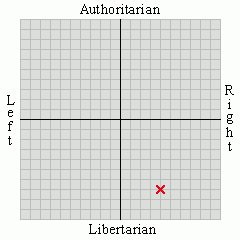The number of people who are neither in work nor seeking employment reached 8.08 million in the last three months of last year, the highest on record.Not a pretty sight, but actually it's uglier still.
In all, 21.3 per cent of working-age adults are now "economically inactive", a category that includes students, the long-term sick, unpaid carers and those who retire early.
Much of the in increase came from people opting to study instead of working or seeking work.
However, 78,000 of the inactive were recorded as “discouraged” workers, people who have simply given up because they do not believe there are any jobs available.
The “discouraged” total rose by 57.9 per cent from 2008. A total of 5.75 million inactive people do not want a job.
The figures were published by the Office for National Statistics, which also disclosed the number of people claiming jobseekers’ allowance at its highest since the month before Labour come to power in 13 years ago.
The data showed that there were a total of 28.91 million people in employment in the last quarter. However, the total conceals millions of people who are not working full-time.And not all the full time jobs directly contribute to the economy either. Some of them are public sector jobs of course. And while some public sector may have value and contribute indirectly, the doctor who makes a patient well and able to work again for example, some certainly don't... and all are paid for by taxing the private sector. How many people are we talking about here?
Public sector jobs increased by 5 per cent over a year to 6.09 million. In all, the state gained 290,000 employers[sic*] from September 2008 to Sept 2009.So the two together make more than 14 million people living off the government's generosity with other people's money.
During the same period, private sector jobs fell by 735,000 to 22.82 million.That's a ratio of very nearly 60:40, or to put it another way every three people who are in the private sector are between them supporting roughly two more people who are either working in the public sector or not working at all. 'Kinell.
Now as I said above I'm not suggesting that all public sector jobs are unproductive and should be scrapped, but being very much of the minarchist persuasion I'd happily wave goodbye to quite a lot of them. And the same goes for the unemployed and economically inactive. Obviously that includes a number of people who've chosen retirement or the life of a stay at home parent, and a number of people who are simply between jobs, and a number of people who would work but are forced not to by circumstances not of their choosing - that's people stuck in the benefits trap as well as full time carers etc. So I'm not blaming or judging here, but I am wondering how much longer the work of three people must continue to support not just themselves and their dependents but two others and their dependents as well. And since the public sector seems unlikely to shrink I'm wondering will that ratio reach 50:50? Might it even reverse and become two working to support three more? At what point will it become unsustainable and come crashing down around everyone, and how will the pieces be picked up?
It's genuinely fucking frightening.
* After blogging this I noticed the Libertarian Alliance had written about it too and pointed out that almost certainly 'employees' was meant where it said 'employers'.


















